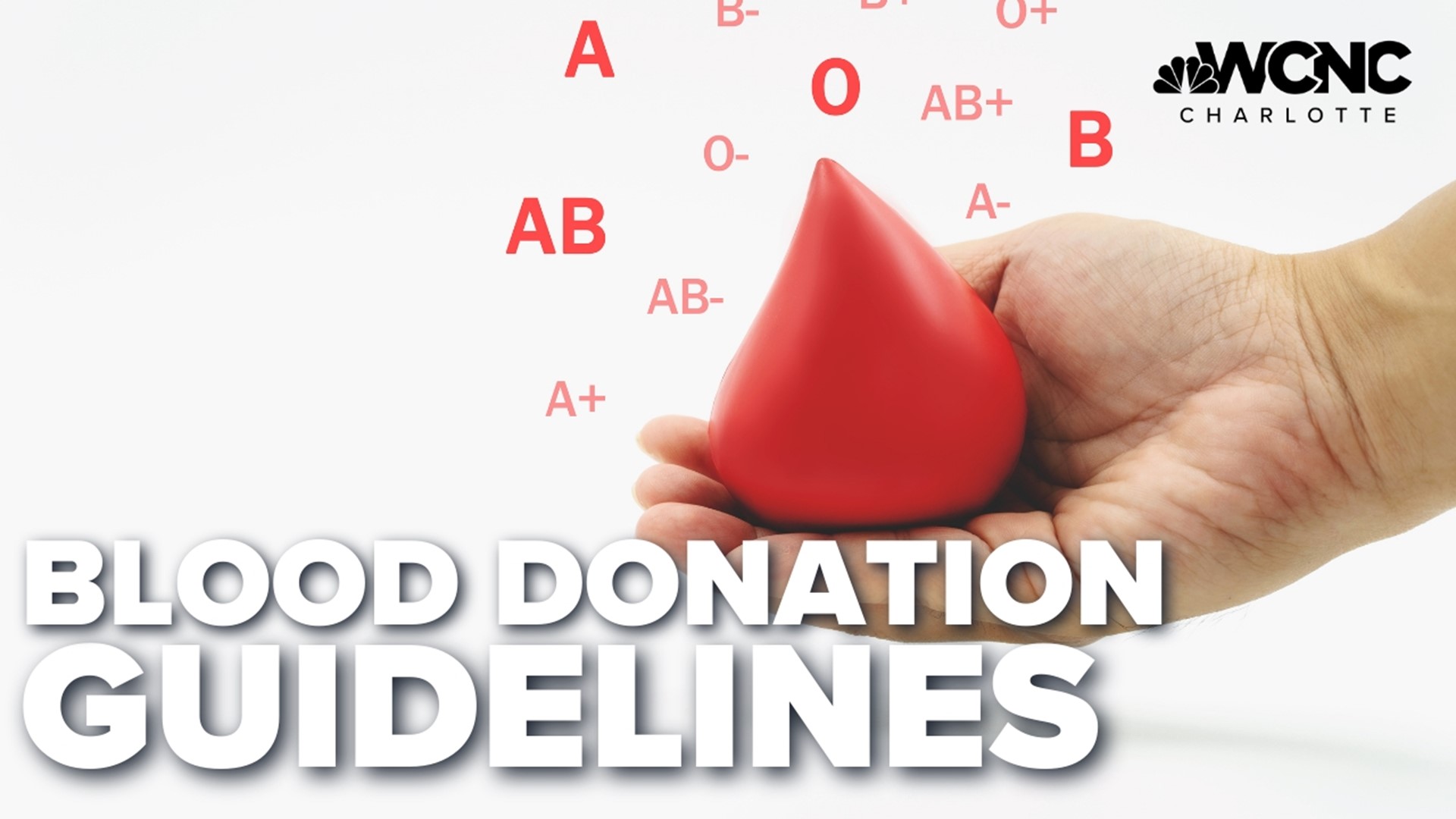CHARLOTTE, N.C. — The US Food and Drug Administration is taking steps that may allow gay and bisexual men to donate blood.
Men who have sex with men (MSM) have been largely turned away from donating blood following a ban in the 1980s given HIV fears. The FDA relaxed the rules in 2015 — moving away from a lifetime ban to one that allowed gay and bisexual men to donate if they have not had sexual contact with other men in the past year.
Given blood shortages that were exacerbated during the COVID-19 pandemic, the period of time was reduced to three months.
The FDA funded a study called Assessing Donor Variability and New Concepts in Eligibility (ADVANCE), which recently concluded. It considers a more individual approach to determining risk.
"Together, the LGBTQ+ community, blood centers, and the FDA are collaborating to determine if a blood donor history questionnaire based on individual risk would be an acceptable alternative to a time-based deferral in reducing the risk of HIV among gay and bisexual men who present to donate blood," the ADVANCE web page reads. "This could potentially lead to changes to the FDA’s current three-month deferral policy for men who have sex with men or MSM."
This means instead of having to wait to donate blood, gay and bisexual men could be given a questionnaire instead.
Current policy requires gay and bisexual men “defer for 3 months from the most recent sexual contact, a man who has had sex with another man during the past 3 months,” according to the FDA. All U.S. blood collection organizations must follow this federal requirement.
In a statement from the FDA, the administration is currently reviewing the data to learn "if a donor questionnaire based on individual risk assessment would be as effective as time-based deferrals in reducing the risk of HIV."
O'Neale Atkinson, a representative with Time Out Youth and a member of the LGBTQ community, said the current restrictions are discriminatory.
"A lot of regulations around gay men and providing blood has always been grounded in homophobia," Atkinson said. “Ultimately, the more people that are able to give blood, the more people who are able to receive care. This impacts more than LGBTQ men. It impacts them and non-LGBTQ folks.”
According to OneBlood and the American Red Cross, when any blood is given to a blood bank, it is tested for at least 12 different viruses. There are already rapid blood tests to detect HIV at donation sites.
Contact Austin Walker at awalker@wcnc.com and follow him on Facebook, Twitter, and Instagram.

